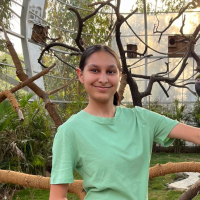View this post on Instagram
{*Did you know you can write on Elephant? Here’s how—big changes: How to Write & Make Money or at least Be of Benefit on Elephant. ~ Waylon}
~
As teenagers, we stand at a pivotal moment in history where our choices hold the potential to shape the future of our planet.
One such choice, transitioning to a plant-based diet, not only benefits our health and aligns with ethical considerations but also plays a crucial role in combating climate change.
Here’s a comprehensive guide for fellow teenagers on how to embark on this transformative journey—to go plant-based while addressing the urgent issue of climate change.
Climate change is one of the most pressing challenges of our time, with far-reaching consequences for ecosystems, economies, and human well-being. The food system, particularly animal agriculture, is a significant contributor to greenhouse gas emissions, deforestation, and other environmental issues.
By choosing a plant-based diet, we can significantly reduce our carbon footprint and mitigate the impact of climate change.
The environmental benefits of a plant-based diet are manifold.
>> Animal agriculture is a major emitter of greenhouse gases, including methane and nitrous oxide, which contribute to global warming.
>> Additionally, vast amounts of land, water, and resources are required to raise livestock and grow feed crops, leading to deforestation, habitat destruction, and depletion of freshwater resources.
>> By shifting toward a plant-based diet, we can reduce the demand for animal products and alleviate the strain on natural resources.
>> Furthermore, adopting a plant-based diet can help mitigate the environmental impacts of food production. Plant-based foods generally require fewer resources, such as land, water, and energy, to produce compared to animal products.
>> By choosing plant-based alternatives, we can promote more sustainable farming practices and reduce the environmental footprint of our food choices.
Transitioning to a plant-based diet as a teenager not only empowers us to make positive changes in our own lives but also allows us to contribute to larger efforts to address climate change.
By reducing our consumption of animal products and embracing plant-based alternatives, we can collectively work toward a more sustainable and resilient food system that is better equipped to withstand the challenges of a changing climate.
Firstly, it’s essential to understand what a plant-based diet entails.
Unlike a vegetarian diet, which excludes meat but may include animal-derived products like dairy and eggs, a plant-based diet focuses primarily on consuming foods derived from plants such as fruits, vegetables, grains, legumes, nuts, and seeds.
Transitioning to a plant-based diet as a teenager may seem daunting at first, especially considering the typical adolescent lifestyle and social dynamics. However, with careful planning and the right mindset, it can be a smooth and rewarding experience.
Here are some practical steps to get started:
1. Educate Yourself: Take the time to research and learn about the benefits of being plant-based for your health, the environment, and animal welfare. Understanding the reasons behind your decision will strengthen your commitment and resolve.
2. Start Gradually: Transitioning to a plant-based diet doesn’t have to happen overnight. Begin by incorporating more plant-based meals into your diet while gradually reducing your consumption of animal products. Experiment with new recipes and ingredients to discover delicious plant-based alternatives.
3. Plan Balanced Meals: Ensure that your plant-based meals are nutritionally balanced by including a variety of fruits, vegetables, whole grains, legumes, nuts, and seeds. Pay attention to getting an adequate intake of essential nutrients such as protein, iron, calcium, vitamin B12, and omega-3 fatty acids.
4. Get Creative: Explore different cooking methods and flavor combinations to keep your meals exciting and satisfying. Don’t be afraid to try new foods and experiment with plant-based substitutes for your favorite animal products.
5. Stay Connected: Surround yourself with supportive friends, family members, or online communities who share your values and dietary preferences. Sharing experiences, recipes, and tips can help you stay motivated and inspired on your plant-based journey.
6. Be Mindful: Pay attention to how your body feels as you transition to a plant-based diet. Listen to your hunger and fullness cues, and make adjustments to your diet as needed to ensure you’re meeting your nutritional needs.
7. Advocate for Change: Use your voice to raise awareness about the benefits of a plant-based lifestyle and advocate for more plant-based options in your school cafeteria, local restaurants, and community events. By leading by example and sharing your journey with others, you can inspire positive change in your community.
In conclusion, transitioning to a plant-based diet as a teenager is not only feasible but also immensely rewarding. By making mindful food choices that prioritize health, sustainability, and compassion, we can contribute to a brighter and more sustainable future for ourselves and the planet.
Let’s harness the power of plants to lead the way toward a more sustainable and compassionate world.
~
{Please consider Boosting our authors’ articles in their first week to help them win Elephant’s Ecosystem so they can get paid and write more.}
 Share on bsky
Share on bsky

Read 3 comments and reply